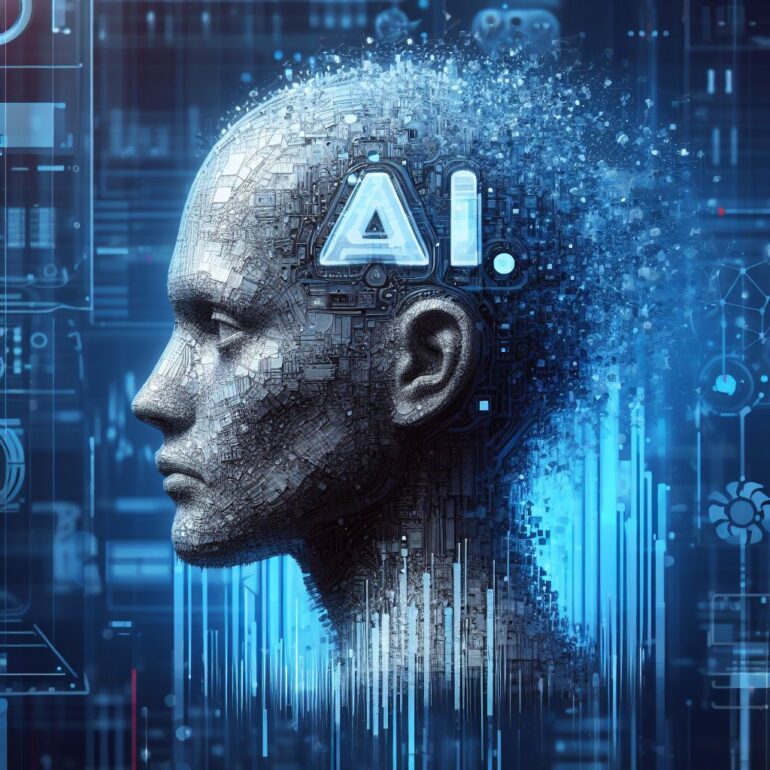TL;DR:
- DeepMind researchers demonstrate AI’s ability to learn through social imitation, mirroring human and animal social learning.
- Traditional AI skill acquisition relies on resource-intensive supervised learning.
- In a simulated environment, AI agents quickly learn from both human and AI experts without prior exposure to humans.
- Reinforcement learning enables AI agents to identify experts, replicate their actions, and retain knowledge in minutes.
- The study opens doors for cultural evolution to play a key role in the development of artificial general intelligence.
Main AI News:
In a groundbreaking study, a team of machine learning researchers at Google’s DeepMind has unveiled the remarkable potential of AI to acquire skills through a process akin to social learning, mirroring the way humans and animals learn from one another. Social learning, characterized by the acquisition of skills and knowledge through imitation, is fundamental to human and animal development. DeepMind’s researchers claim to be pioneers in demonstrating this phenomenon in artificial intelligence.
Led by Edward Hughes, a staff research engineer at Google DeepMind, the team embarked on a mission to address the limitations in AI skill acquisition. Traditional methods involved teaching AI agents new capabilities through supervised learning, requiring extensive human demonstrations that consumed considerable time and resources. Seeking inspiration from human learning processes, the researchers set out to prove that AI agents could achieve efficient skill acquisition by learning from other individuals.
In a simulated physical environment known as GoalCycle3D, which resembles a computer-animated playground featuring footpaths and obstacles, AI agents displayed the ability to learn from both human and AI experts across various navigational challenges. This achievement is remarkable, considering these agents had never encountered a human, let alone possessed an understanding of what a human is.
The research, published in the peer-reviewed open access journal Nature Communications, details how the team employed reinforcement learning to train AI agents capable of identifying new experts, replicating their actions, and retaining the acquired knowledge within a matter of minutes.
“Our agents excel in real-time imitation of human behavior in unfamiliar contexts, all without the need for pre-collected human data. We have identified a surprisingly straightforward set of techniques that facilitate cultural transmission and have developed a robust evaluation methodology for its assessment. This breakthrough opens the door for cultural evolution to play a pivotal role in the development of artificial general intelligence,” the study stated.
The researchers eagerly anticipate the broader application of their findings in the field of AI, illustrating how cultural evolution, the accumulation of skills across multiple generations within a community, can be integrated into AI development.
“Incorporating these elements, it becomes intriguing to examine whether cultural evolution within a population of AI agents can lead to the accumulation of problem-solving behaviors that encompass an increasingly diverse range of real-world challenges. One could envision a series of experiments exploring the cultural accumulation spanning several ‘generations’ of humans and AIs within a controlled environment, enabling comparisons between various populations and analyzing the effects of mixing human and AI participants. We anticipate fruitful interdisciplinary collaboration between the realms of AI and cultural evolutionary psychology in the future,” the researchers concluded.
Conclusion:
DeepMind’s breakthrough in AI skill acquisition through social learning holds significant implications for the market. This advancement reduces the resource-intensive nature of traditional AI skill training, potentially making AI development more cost-effective and efficient. Furthermore, the integration of cultural evolution into AI development could lead to the accumulation of problem-solving behaviors across generations of AI, enhancing their ability to tackle a wider range of real-world challenges. Businesses in the AI sector should closely follow and potentially adopt these innovative approaches to stay competitive and drive advancements in the industry.

